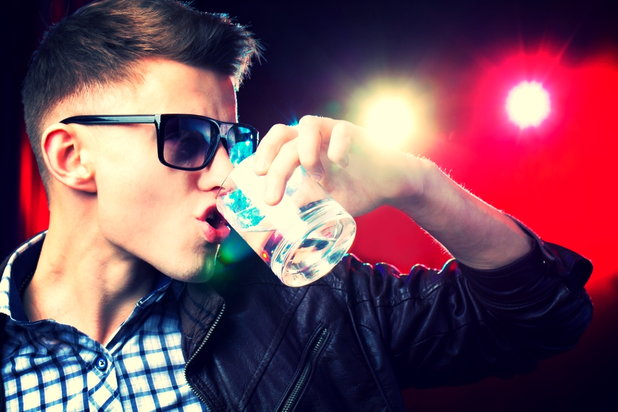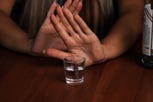Experimenting with alcohol during teen years is nothing new. However, starting to drink at a young age can increase the likelihood of problems with alcohol. Further, the rate of teens drinking alcohol is increasing at high rates and the age for experimentation is getting younger. Research indicates that those who begin to experiment with alcohol prior to age 15 are six times more likely to develop dependence later. This leads to the belief that early intervention can prevent abuse. This may not be the case. Research must also look at the disease concept of alcoholism.
Treating the Disease of Alcoholism
Discouraging underage drinking and drug use has not historically affected outcomes for later dependence. The "Just Say No" government-run anti-drug campaign was a failure in preventing alcohol abuse by teens and pre-teens. The line of reasoning for this campaign may have been faulty, since it implied that alcoholism was only a result of choices people made, rather than also being a disease and real addiction.
However, it is now accepted that alcoholism is a disease, and whether underage kids drink or not does not necessarily determine whether one will turn into an alcoholic. While it is certainly true that drinking patterns established in the early teens may lead to a future problem with dependency on alcohol, there are other factors that can contribute to alcoholism.
Markers that Indicate a Disposition toward Alcoholism
What does indicate future use of drugs and alcohol in teens are developmental and genetic markers indicating risk-taking tendencies and predilections for low rates of coping among young people. Another factor, labeled resiliency, is a coping mechanism or marker that can determine a disposition for alcoholism. Those who undergo poor parenting or trauma at a young age may either try to deal with issues by seeking escape via drugs or alcohol, or they show more resiliency and can recover from those issues without seeking escape via drugs or alcohol.
There is great difference between teenage alcohol or drug experimentation and addiction or alcoholism. Preventative education and intervention to reduce experimentation for teens may help to stem the rising incidence of traffic fatalities, overdose and suicide among those who try alcohol due to peer pressure and/or social factors. This is the focus of many of these studies and government programs to improve parental guidance for teens who are considering exploration.
However, for teens who may need it, there is treatment for teens who show signs of alcohol dependence. In dealing with teens who may have early problems with alcohol, what is important to determine is the extent of the problem. Signs to look for in teenagers who may have an alcohol problem:
- lying about where they go and with whom
- new friends or groups
- changes in habits and behavior like a drop in grades or disinterest in hobbies
- mood swings
- angry or emotional outbursts
- smell of alcohol on breath or clothing
- breaking rules of curfew or rules at school
These signs may indicate beginnings of experimental drinking, but can also be signs of a more established problem. Parents who suspect their child may be experimenting with alcohol are encouraged to seek help. This may be found in counseling, therapy or treatment if the behaviors persist. Addiction is treatable and family counseling may indicate how deep the problem runs.
If you or someone you know is seeking help from addiction, please visit our directory of treatment centers or call 800-772-8219 to start the path to recovery today.







